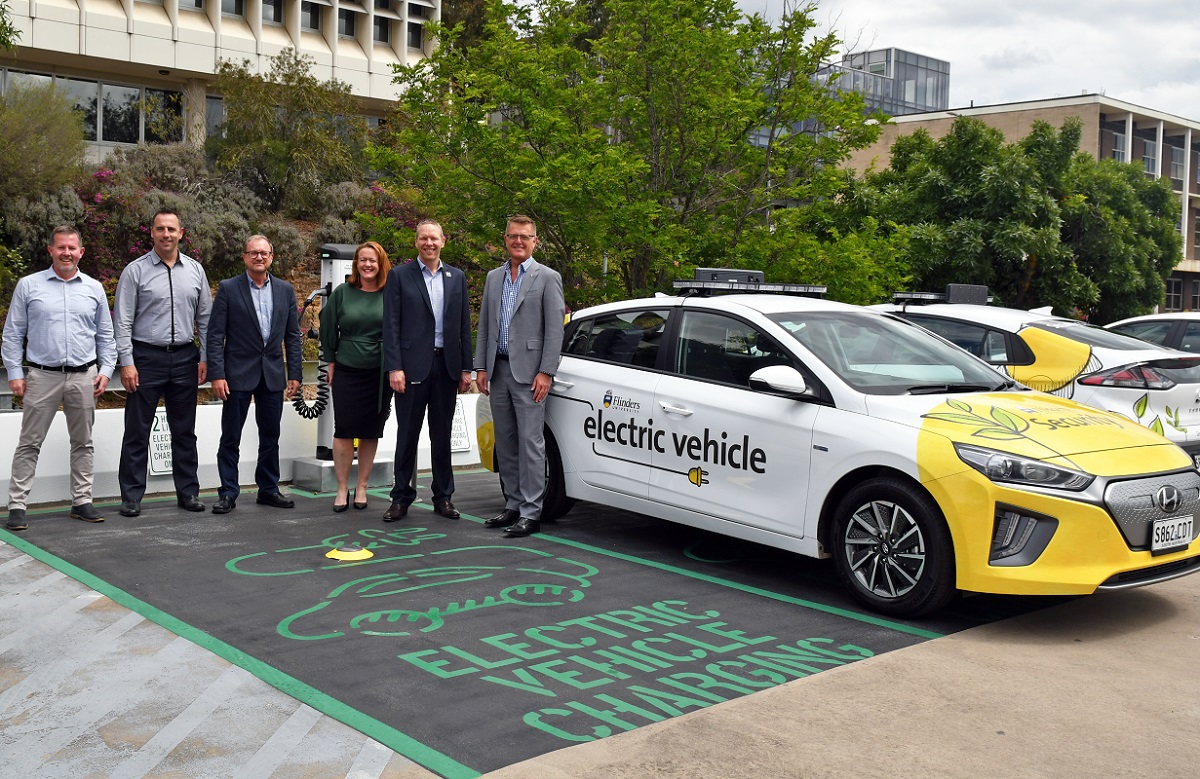
Our commitment towards a sustainable future continues here at Flinders University, with the installation of 13 new electric vehicle charging stations on the main campus as our fleet commences its transition to electric vehicles.
The chargers are available in car parks 6, 9 and 14 and are free for students and staff to charge their electric vehicles.
Green technologies are a high priority for the University and our green energy credentials adds to the opportunities for students to engage in practical learning onsite, exposed to the latest in renewable technology and transport systems.
I had the opportunity to take a close look at the infrastructure and one of our electric vehicles this week – which have been freshly decorated, so you’ll easily recognise them when you see them gliding around campus!
At the moment we have three electric vehicles with more due to arrive before the end of the year. We will be gradually transitioning the remaining vehicles over the next few years, including looking at options to transition our larger vehicles such as our loop buses.
Our main campus currently has 2.22MW of renewable energy generation from our solar roof-top installations, including one of Adelaide’s largest solar arrays of 4,136 panels over carpark #3 and more recent installations that take the total number of panels to 7,467. We produce over 20% of our campus’ energy needs and are aiming to lift that to 30%. In addition, we’re looking into sourcing the balance of our energy needs from wind and solar power generated in South Australia. This balance of on-site and off-site renewable energy will place us in a position where all the electricity we consume is ‘zero emissions’, including our fleet.
Earlier this year, we installed four solar shelters that are providing spaces for students to recharge their devices while relaxing with friends, watching an inbuilt digital screen, or sheltering from the elements. These stand-alone systems draw energy from solar panels that form the roof structure, charging the built-in batteries stored in the seating. The canopies are a practical demonstration of how solar energy and storage can be integrated into real world learning opportunities for our students and staff.
It’s all part of our Sustainability Plan, which was co-designed by students and staff over 2018, and launched at the beginning of last year. It is fair to say the circumstances we’ve found ourselves in this year have necessitated some delays in aspects of the plan, but nevertheless a huge amount of progress is being made.
As was illustrated so well by Professor David Karoly at last week’s Investigator Lecture, we all have a responsibility to both limit and manage the impacts of climate change. As a university, we’re focused on so many aspects. Although we must take a global perspective, we also remain steadfastly committed to transforming our own operations as we progress along our sustainability journey.
Colin

